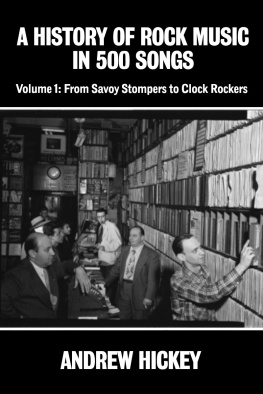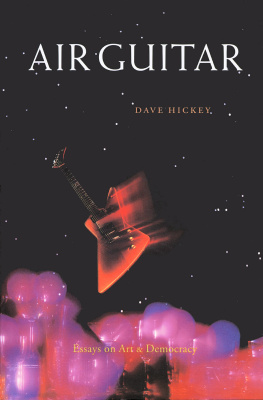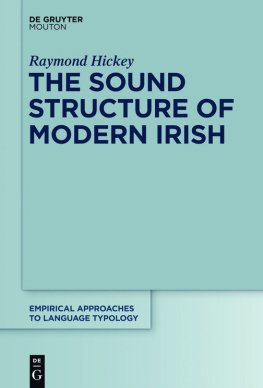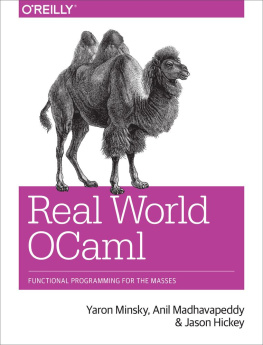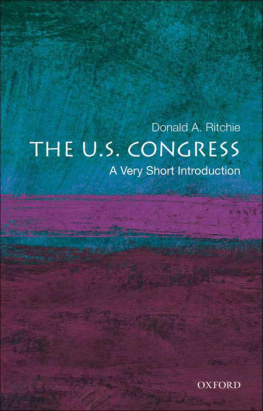The War of 1812
The War of 1812
A Short History
Bicentennial Edition
DONALD R. HICKEY
University of Illinois Press
URBANA, CHICAGO, AND SPRINGFIELD
2012 by the Board of Trustees
of the University of Illinois
All rights reserved
Manufactured in the United States of America
P 5 4 3 2 1

This book is printed on acid-free paper.
Library of Congress Cataloging-in-Publication Data
Hickey, Donald R., 1944
The War of 1812 : a short history / Donald R. Hickey.Bicentennial ed.
p. cm.
Includes bibliographical references and index.
ISBN 978-0-252-07877-4 (pbk. : acid-free paper)ISBN 978-0-252-09447-7 (e-book)
1. United StatesHistoryWar of 1812. I. Title.
E354.H535 2012
973.5'2dc23 2012013874
Contents
Preface to Bicentennial Edition
In the mid-1980s, I decided to write a short book on the War of 1812 that would be suitable for college-level U.S. history survey courses, but the project soon took on a life of its own. The result was a full-blown military, political, and diplomatic history of the war that was published in 1989 as The War of 1812: A Forgotten Conflict. Several years later, I decided to put out an abridged version of this book that I hoped would serve my original purpose. The result was The War of 1812: A Short History, which was published in 1995.
I recently put out a new edition of A Forgotten Conflict to correct errors and incorporate new material from the many works that had appeared, particularly on the wars military history, since the first edition was published. The same logic suggested that I revise A Short History.
I have rewritten virtually every chapter although the most significant changes are in the three military chapters. I have also included new material on the legacy of the war, which has been little studied by scholars and yet seems to me to warrant serious consideration.
I have tried to make this work easier to read by including subheadings. I have also added illustrations and a new set of maps, and Ive revised the Chronology and the Suggestions for Further Reading. Although the University of Illinois Press had provided me with an electronic copy of the original work, I produced this manuscript from scratch. I kept the original book before me, but I undoubtedly made more changes than if I were just tweaking the electronic copy. The new edition is a little over 50,000 words, about 25 percent longer than the original version. Although this work is essentially an abridgement of the revised edition of A Forgotten Conflict, I have made a few corrections and added some fresh material. The sources for all quotations can be found in the longer work.
Preface to First Edition
This book is a condensed version of my study, The War of 1812: A Forgotten Conflict, which was published by the University of Illinois Press in 1989. That work enjoyed a fairly wide audience, mainly through the Book-of-the-Month Club and the History Book Club. My aim here is to present the essentials of that study in abbreviated form. The original work was 118,000 words and included 115 pages of notes. I have dropped the notes and trimmed the text by almost two-thirdsto about 40,000 words. Most of the cuts were made in the domestic history although I also compressed the diplomatic history and eliminated some details from the military and naval campaigns. I have modernized the capitalization, spelling, and punctuation of all contemporary quotations. I have also added a chronology. As in the original study, the maps have been put at the end of the text to facilitate use.
For helpful criticism of an early draft of this work, I am indebted to Vance Burke, Connie Clarke, and Bob McColley.
The War of 1812
Introduction
The War of 1812 is probably our most obscure major war. It lacks the grand scope and significance of the Revolution, the Civil War, and the world wars, and it is buried too deep in the past to compete in the public memory with the wars in Korea or Vietnam or our more recent conflicts in Iraq and Afghanistan. The Indian wars in the nineteenth century are better known, and the same may also be true for our wars of domestic and overseas expansionthe Mexican War (18461848) and the Spanish-American War (1898).
The average American is only vaguely aware of who our enemy was in the War of 1812 or why we fought. Even those who know something about the conflict are likely to remember only a few of the more dramatic highlights, such as the burning of the nations capital, the defense of Fort McHenry and the writing of the national anthem, and Andrew Jacksons spectacular victory at New Orleans.
Why is this war so obscure? One reason is that no great president is associated with the contest. Although his Federalist enemies called it Mr. Madisons War, President James Madison was not a strong leader and thus never put his stamp on the conflict. In addition, the fighting was too diffuse to enable any one general to lead the nation to victory. In the land war, there were seven theaters of operationfour on the Canadian-American border, a fifth in the Chesapeake, a sixth in the Southwest, and a seventh on the Gulf Coastand arguably the high seas constituted an eighth theater of operations. The war produced a number of successful army leadersWilliam Henry Harrison on the Detroit frontier, Jacob Brown and Winfield Scott on the Niagara frontier, and Andrew Jackson in the Southwest and on the Gulf Coastbut given the scope of the conflict, it was impossible for any of these men to shape the broader outcome of the war. There was no one like George Washington, Ulysses Grant, or Dwight Eisenhower that we can credit with leading the nation to victory.
Another reason for the obscurity of this war is that the causes are complex and still subject to debate. It is often difficult to nail down the causes of a war because (especially in a democracy) many people may have a role in the decision and each may support war for a different reason. Even when one person plays a central role in the decision-making, he might have multiple and even contradictory reasons for favoring war.
Most scholars today agree that the United States went to war in 1812 mainly over maritime issues. The principal U.S. aim was to force the British to give up the Orders-in-Council, which restricted American trade with the European Continent, and impressment, which was the Royal Navys practice of removing seamen from American merchant ships to fill out the crews of its warships. According to this school of thought, war in 1812 was undertaken (in the language of the day) to uphold Free Trade and Sailors Rights.
There are, however, other schools of thought. Some writers have insisted that the nations real aim was to seize Canada in order to put an end to British influence over American Indians or to secure additional farmland. Others have focused on ideological factorsthe desire to preserve American honor, uphold national prestige, and demonstrate that the fragile young Republic could defend its rights in a war-torn world. There is even a school of thought that has emphasized the political origins of the war, that is, the determination of the Jeffersonian Republicans to use war as a vehicle to forge party unity, preserve national power, and silence their Federalist critics. It is possible, even likely, that all of these issues played some role in causing the war, although scholars have reached no consensus on their relative importance.



 This book is printed on acid-free paper.
This book is printed on acid-free paper.



